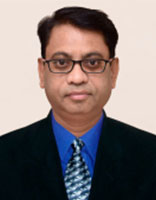CONTACT US
We'd love to hear from you
+91-99093 61030
+91-97266-19831

Organizing Secretary
Dr G. V. Prajapati
Research Scientist (Agril. Engg.)
Centre of Excellence on Soil and Water Management
Research Testing and Training Centre (RTTC), JAU, Junagadh.
coeswm@jau.in
|
www.ictpairs.in

Co-Organizing Secretary
Dr P. A. Pandya
Assistant Research Scientist,
Centre of Excellence on Soil and Water Management
Research Testing and Training Centre (RTTC), JAU, Junagadh.
coeswm@jau.in
|
www.ictpairs.in